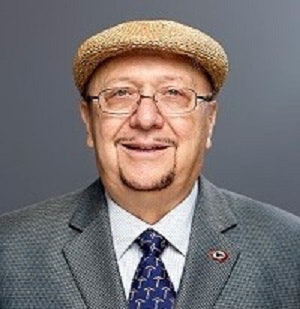An online multidisciplinary and interdisciplinary program that offers intuitive understanding of the dynamics of the U.S.-Mexico border and the Latino presence in the U.S. is gaining momentum at The University of Texas at El Paso.
Dr. Dennis Bixler-Márquez, director of Chicano Studies at UTEP, said a new Chicano Studies degree there allows students to learn about U.S.-Mexico economics, culture, history and arts.
 Dr. Dennis Bixler-Márquez
Dr. Dennis Bixler-Márquez“There are large concentrations of ethnic Mexicans residing throughout the country, especially New York, Chicago and California, who hunger for knowledge about their history and culture, who want to see themselves in the grand narrative of the United States. This program provides them with that space,” he said.
Latinos are the largest minority group and fastest-growing population in the U.S. Chicano Studies majors will complete 30 hours of core courses in Chicano literature, cultural diversity, immigration, social justice and more, Bixler-Márquez said. The program grew from the traditional “face-to-face” classroom curriculum to one that is now available “100 percent online,” he said.
“From that model, we developed an extended university that we call ‘university connect’ where everything has to be online,” said Bixler-Márquez. “The process was formed from the feedback of students. We launched in the fall and we cover every area you find in liberal arts, including health services, Latino politics, Chicano literature. It covers the aesthetic dynamics of fine arts, which includes cinema, dance and arts.”
The bachelor of arts program has grown to more than 20 students locally and abroad, including some as far away as Afghanistan and the demilitarized areas in Korea, said Bixler-Márquez. He added that the course “gets a great deal of interest” from the student body, likely because of UTEP’s location, diverse population and rich history of ethnic learning.
El Paso, Spanish for ‘’the pass,” is in the far western corner of Texas on the Rio Grande River, across the international border from the Mexican city of Ciudad Juarez.
The current course is set up so that students can start at the beginning of or during the program.
“The idea is like a carousel. They can start in the middle, but we would like for them to start at the beginning,” Bixler Marques said. “People have been able to join the program in spring. We have a carousel of courses that go in lockstep, and they can take the courses in the sequence they are offered using various methods.”
Chicano Studies majors will engage with students from different backgrounds through online group work and discussion boards. They also will develop team, organizational and planning skills and become proficient with computer software programs.
The online program is offered through UTEP Connect, the university’s collection of fully online baccalaureate and certified programs.
A goal for one of the online students is to become an immigration attorney.
“His professional aspirations are in line with what we offer,” said Bixler-Márquez. “He is attending law school at Furman University in South Carolina. He is completing a degree in Chicano Studies at the undergrad level while seeking a law degree on the graduate level.”
Bixler-Márquez said that for some students, getting a degree online is faster than attending classes in the traditional setting.
“Some people have had to give up on getting a degree until this opportunity came along,” he said. “Commuting time and family obligations make it difficult to attend classes. This program is offered online. If you join the program [and] if you stick to the curriculum, you will graduate in a reasonable amount of time.”



















